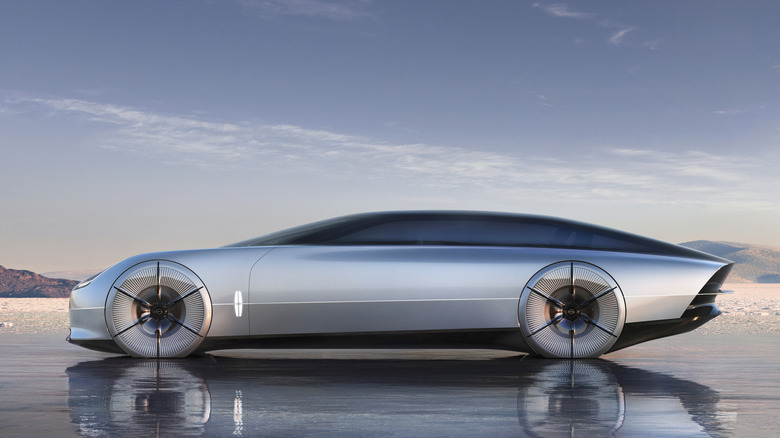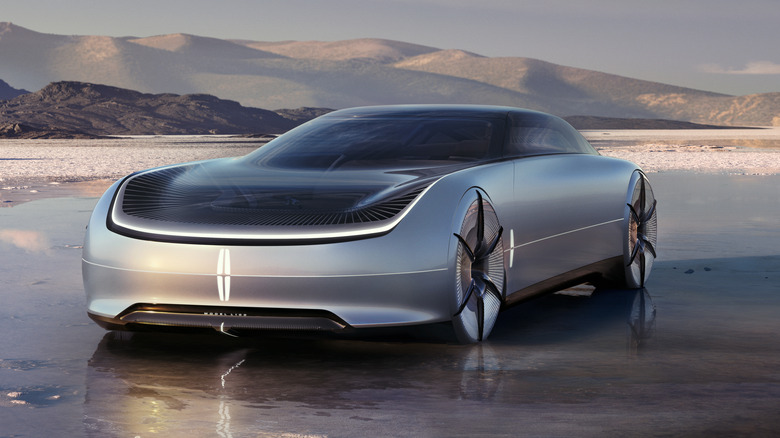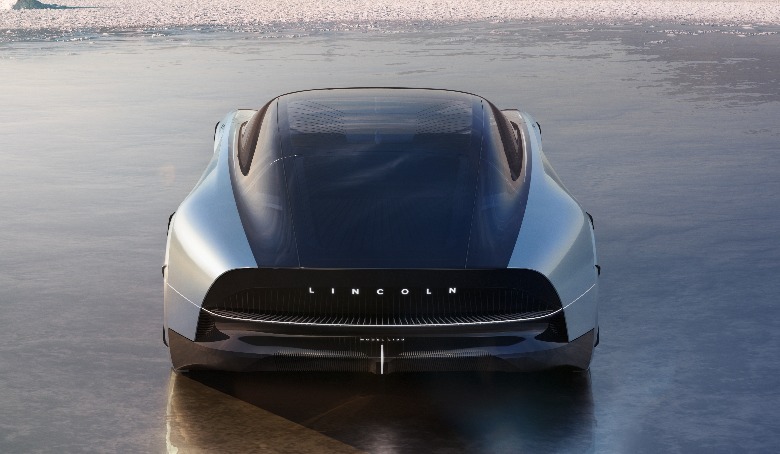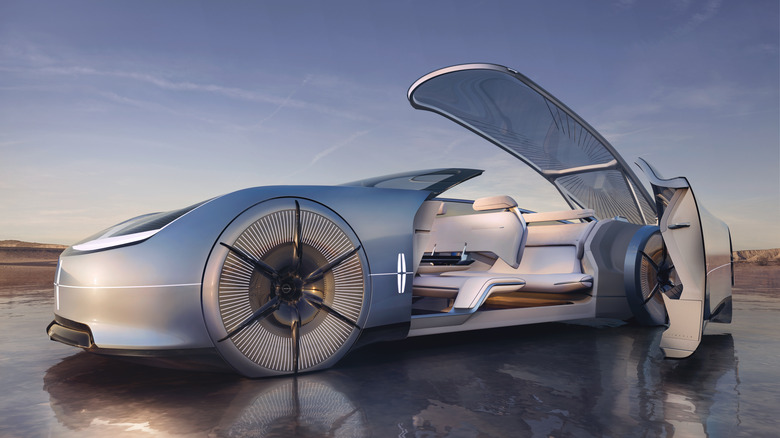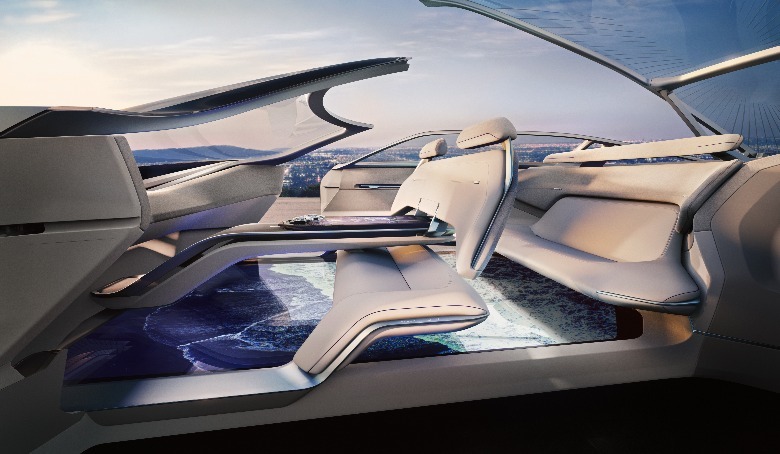The Lincoln L100 Will Totally Change The Way You Think About Cars
Few are privy that American automaker Lincoln has made the most fantastic and eye-catching concept cars ever. It did it again with the Lincoln L100 concept that made its maiden appearance at the 2022 Pebble Beach Concours d'Elegance, the automaker's gift to itself and the world to celebrate its 100th anniversary. The sleek and stylish L100 concept pays homage to Lincoln's first production luxury vehicle, the Lincoln L Series (or Model L), which debuted in 1920.
Henry M. Leland founded the Lincoln Motor Company in 1917, named after the great Abraham Lincoln, the 16th president of the United States. Leland is also the co-founder of American luxury brand Cadillac after initially building car engines for Ford (per Classics & Beyond). According to Bonhams, the Lincoln L Series boasted exquisite craftsmanship and build quality comparable to any luxury marquee of the era, including the Mercedes-Benz 630, Cadillac Type 61, and Rolls-Royce Phantom I.
The Lincoln L Series was a great car, but Leland was unwilling to sacrifice quality to satisfy the company's ambitious sales targets. The board disagreed and put the Lincoln Motor Company under receivership. Henry Ford bought the Lincoln Motor Company for $8 million, and Leland left the automaker shortly after.
Lincoln L100 Concept: Aerodynamic by design
The Lincoln L100 concept is the brand's vision for future mobility. It's hard not to notice the concept's aerodynamically-enhanced shape that pushes the boundaries of Lincoln's "Quiet Flight" design concept. The seamless body sits low on the ground and has flush detailing. It has reverse-hinged suicide doors and a glass roof that lifts elegantly to give a sense of prestige when boarding or departing the vehicle, a sense of occasion that the automaker calls the Lincoln Embrace. "With the Model L100, we were able to push the boundaries in ways that evolve our Quiet Flight brand DNA and change the way we think about Lincoln designs of tomorrow," said Anthony Lo, chief design officer of the Ford Motor Company.
You may know modern Lincoln cars for the Navigator, Aviator, and Corsair SUVs, but the brand has been fascinated by aero-inspired styling cues since the early 1930s. It's hard to forget the VW bug-shaped 1934 Lincoln Zephyr Briggs Prototype, named after aerodynamicist John Tjaarda of Detroit-based coachbuilder Briggs Manufacturing Company, or the Continental 195X and Futura concepts of the 1950s.
But unlike the brand's vintage concept cars, the L100 makes do without oddball shapes, sharp tailfins, or a mixture of both. Instead, the L100 has an organic design that seems to be shaped by the wind. It may be a concept, but Lincoln is heading in the right direction regarding future auto design. Moreover, the L100 is a refreshing site among the sea of Lincoln crossovers and SUVs you typically see at dealerships or on the road.
Future-proof technology
The Lincoln L100 concept's stunning outline wouldn't be possible without its all-electric powertrain and architecture. The L100 is an EV, although Lincoln has yet to reveal the specs and battery capacity. However, the automaker did say the concept has a next-gen battery cell that delivers "game-changing energy density" (per Lincoln). Inside, it has a center console chessboard with a jewel-inspired controller that screams "premium" from every angle. Keen-eyed viewers will notice the lack of a conventional steering wheel and foot pedals, parts that could become obsolete with the advent of fully-autonomous driving technology.
Additionally, the front seats can flip forward as part of the L100 concept's transformable cabin, and the interior is resplendent in sustainable and recycled suede fabric. It also has a fully digital floor with interior ambient lighting that provides a sense of motion and excitement as the vehicle moves elegantly on the road.
Few automakers can boast a century of existence and vehicle-building expertise. Let's raise our glasses to Lincoln for its 100th birthday, and here's to the L100 for reinvigorating Lincoln in its transition from fossil fuel to electrification.
